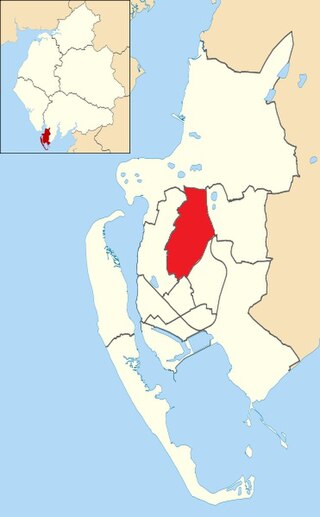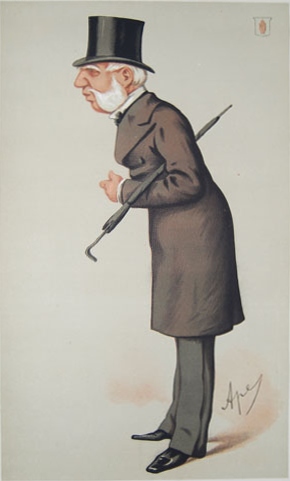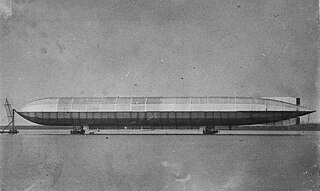
Vickers was a British engineering company that existed from 1828 until 1999. It was formed in Sheffield as a steel foundry by Edward Vickers and his father-in-law, and soon became famous for casting church bells. The company went public in 1867, acquired more businesses, and began branching out into military hardware and shipbuilding.

Basil Zaharoff, GCB, GBE was a Greek arms dealer and industrialist. One of the richest men in the world during his lifetime, Zaharoff was described as both a "merchant of death" and a "mystery man of Europe". His success was forged through his cunning, often aggressive and sharp, business tactics. These included the sale of arms to opposing sides in conflicts, sometimes delivering fake or faulty machinery and skilfully using the press to attack business rivals.
The Maxim gun is a recoil-operated machine gun invented in 1884 by Hiram Stevens Maxim. It was the first fully automatic machine gun in the world.

Sir Hiram Stevens Maxim was an American-born British inventor best known as the creator of the first automatic machine gun, the Maxim gun. Maxim held patents on numerous mechanical devices such as hair-curling irons, a mousetrap, and steam pumps. Maxim laid claim to inventing the lightbulb.

Barrow-in-Furness is a port town and civil parish in the Westmorland and Furness district of Cumbria, England. Historically in Lancashire, it was incorporated as a municipal borough in 1867 and merged with Dalton-in-Furness Urban District in 1974 to form the Borough of Barrow-in-Furness. The borough was merged into the new Westmorland and Furness district in 2023. At the tip of the Furness peninsula, close to the Lake District, it is bordered by Morecambe Bay, the Duddon Estuary and the Irish Sea. In 2021, Barrow's population was 55,489, making it the second largest urban area in Cumbria after Carlisle, and the largest in the Westmorland and Furness unitary authority.

Vickers Shipbuilding and Engineering Limited (VSEL) was a shipbuilding company based at Barrow-in-Furness, England that built warships, civilian ships, submarines and armaments. The company was historically the Naval Construction Works of Vickers Armstrongs and has a heritage of building large naval warships and armaments. Through a complicated history the company's shipbuilding division is now BAE Systems Submarine Solutions and the armaments division is now part of BAE Systems Land & Armaments.

W.D. & H.O. Wills was a British tobacco manufacturing company formed in Bristol, England. It was the first British company to mass-produce cigarettes. It was one of the 13 founding companies of the Imperial Tobacco Company ; these firms became branches, or divisions, of the new combine and included John Player & Sons.
The Mitchell & Kenyon film company was a pioneer of early commercial motion pictures based in Blackburn in Lancashire, England, at the start of the 20th century. They were originally best known for minor contributions to early fictional narrative film and Boer War dramatisation films, but the discovery in 1994 of a hoard of film negatives led to restoration of the Mitchell & Kenyon Collection, the largest surviving collection of early non-fiction actuality films in the world. This collection provides a fresh view of Edwardian era Britain and is an important resource for historians.

Wolseley Motors Limited was a British motor vehicle manufacturer founded in early 1901 by the Vickers Armaments in conjunction with Herbert Austin. It initially made a full range, topped by large luxury cars, and dominated the market in the Edwardian era. The Vickers brothers died and, without their guidance, Wolseley expanded rapidly after the war, manufacturing 12,000 cars in 1921, and remained the biggest motor manufacturer in Britain.

George Albert Smith was an English stage hypnotist, psychic, magic lantern lecturer, Fellow of the Royal Astronomical Society, inventor and a key member of the loose association of early film pioneers dubbed the Brighton School by French film historian Georges Sadoul. He is best known for his controversial work with Edmund Gurney at the Society for Psychical Research, his short films from 1897 to 1903, which pioneered film editing and close-ups, and his development of the first successful colour film process, Kinemacolor.

Thorsten Nordenfelt, was a Swedish inventor and industrialist.
Vickerstown is an area of Barrow-in-Furness, Cumbria, England, covered by the wards of Walney North and Walney South. It is an example of a model village built for workers by a company needing to expand, having been constructed in the early 20th century by Vickers Shipbuilding and Engineering. Vickerstown contains two Conservation Areas and is home to the majority of the population of Walney Island.
Vickers Limited was a British engineering conglomerate. The business began in Sheffield in 1828 as a steel foundry and became known for its church bells, going on to make shafts and propellers for ships, armour plate and then artillery. Entire large ships, cars, tanks and torpedoes followed. Airships and aircraft were added, and Vickers jet airliners were to remain in production until 1965.

John Comer was a British comic actor. He was best known for his roles in Coronation Street as Mr Birtles, then as a taxi driver, and later as Wilf Jones, in Emmerdale Farm as Ernie Shuttleworth, Les Brandon in I Didn't Know You Cared, and cafe owner Sid in Last of the Summer Wine.

Hawcoat is an area and electoral ward of Barrow-in-Furness, Cumbria, England. Historically part of Lancashire, it is one of Barrow's most northerly wards and is bordered by Roose, Newbarns, Parkside, Ormsgill and the town of Dalton-in-Furness to the north.
Bagley & Wright was a spinning, doubling and weaving company based in Oldham, Lancashire, England. The business, which was active from 1867 until 1924, 'caught the wave' of the cotton-boom that existed following the end of the American Civil War in 1865 and experienced rapid growth in the United Kingdom and abroad.

Sir Thomas Bazley, 1st Baronet DL was a British industrialist and Liberal politician.

The Maxim-Nordenfelt Guns and Ammunition Company was the result of a takeover by Hiram Maxim of Thorsten Nordenfelt's Nordenfelt Guns and Ammunition Company in 1888. Rothschild issued £1.9 million (1888) worth of shares to finance the merger. Nathan Rothschild retained a substantial shareholding in the new Maxim-Nordenfelt combine and ‘exerted a direct influence over its management’.

His Majesty's Airship No. 1 was designed and built by Vickers, Sons and Maxim at their works in Barrow-in-Furness, Lancashire, England, as an aerial scout airship for the Royal Navy. It was the first British rigid airship to be built, and was constructed in a direct attempt to compete with the German airship programme. Often referred to as "Mayfly", a nickname given to it by the lower deck, in public records it is designated 'HMA Hermione' because the naval contingent at Barrow were attached to HMS Hermione, a cruiser moored locally preparing to act as its tender.
The Lancashire Militia was an auxiliary military force in Lancashire in North West England. From their formal organisation as Trained Bands in 1558 and their service in the Williamite War in Ireland and against the Jacobite Risings, the Militia regiments of Lancashire served during times of international tension and all of Britain's major wars. They provided internal security and home defence but sometimes operated further afield, including Ireland and the Mediterranean, relieving regular troops from routine garrison duties, and acting as a source of trained officers and men for the Regular Army. All the infantry battalions went on active service during the Second Boer War and all served as Special Reserve training units in World War I, with one battalion seeing considerable action on the Western Front. After 1921 the militia had only a shadowy existence until its final abolition in 1953.














